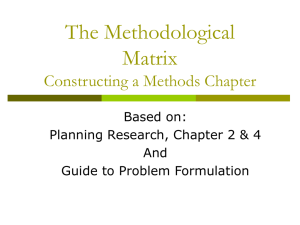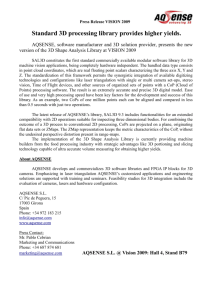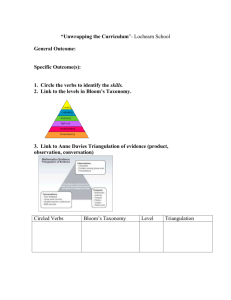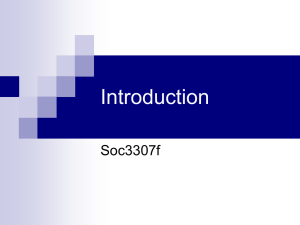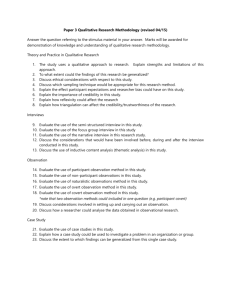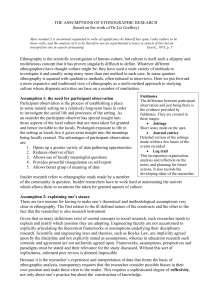Triangulation
advertisement
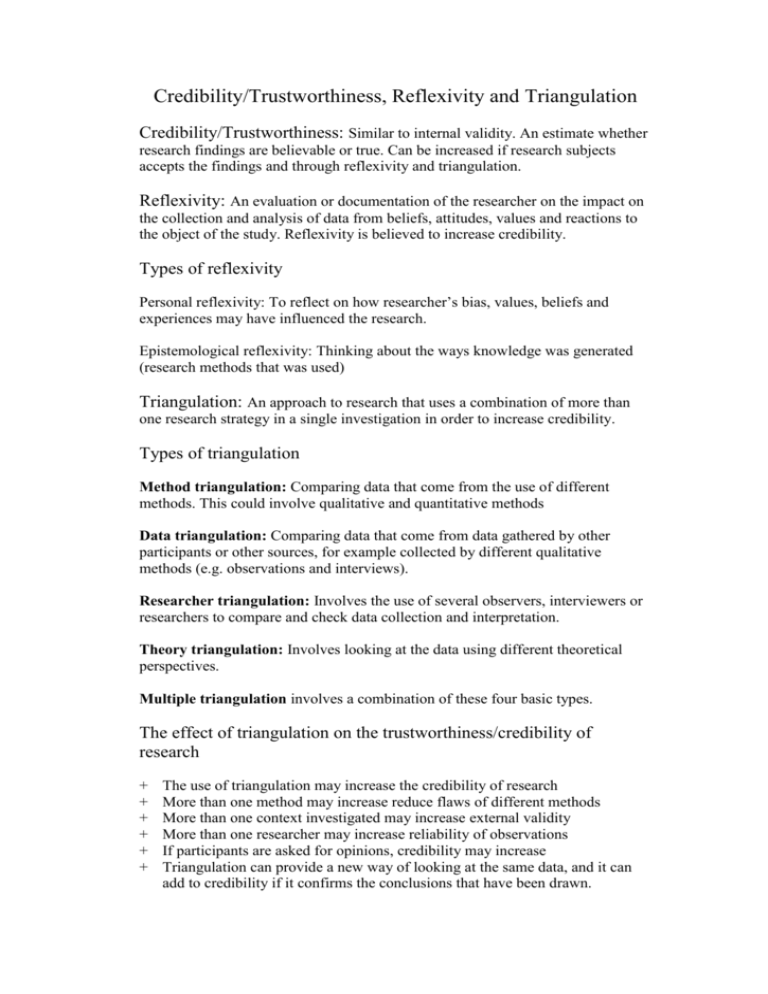
Credibility/Trustworthiness, Reflexivity and Triangulation Credibility/Trustworthiness: Similar to internal validity. An estimate whether research findings are believable or true. Can be increased if research subjects accepts the findings and through reflexivity and triangulation. Reflexivity: An evaluation or documentation of the researcher on the impact on the collection and analysis of data from beliefs, attitudes, values and reactions to the object of the study. Reflexivity is believed to increase credibility. Types of reflexivity Personal reflexivity: To reflect on how researcher’s bias, values, beliefs and experiences may have influenced the research. Epistemological reflexivity: Thinking about the ways knowledge was generated (research methods that was used) Triangulation: An approach to research that uses a combination of more than one research strategy in a single investigation in order to increase credibility. Types of triangulation Method triangulation: Comparing data that come from the use of different methods. This could involve qualitative and quantitative methods Data triangulation: Comparing data that come from data gathered by other participants or other sources, for example collected by different qualitative methods (e.g. observations and interviews). Researcher triangulation: Involves the use of several observers, interviewers or researchers to compare and check data collection and interpretation. Theory triangulation: Involves looking at the data using different theoretical perspectives. Multiple triangulation involves a combination of these four basic types. The effect of triangulation on the trustworthiness/credibility of research + + + + + + The use of triangulation may increase the credibility of research More than one method may increase reduce flaws of different methods More than one context investigated may increase external validity More than one researcher may increase reliability of observations If participants are asked for opinions, credibility may increase Triangulation can provide a new way of looking at the same data, and it can add to credibility if it confirms the conclusions that have been drawn. - - There might be disagreeing findings between methods Comparison between different methods may be difficult. Hammersley (1992) claims that it is not possible to know with certainty that an account is true, because there is no independent and completely credible way to find the “truth”. The only way to get closer to the truth is to carefully examine all evidence and see whether it supports the interpretation. Some qualitative researchers argue that it is not possible to establish criteria for trustworthiness and credibility, because qualitative research is based on more or less subjective interpretations of the world.
